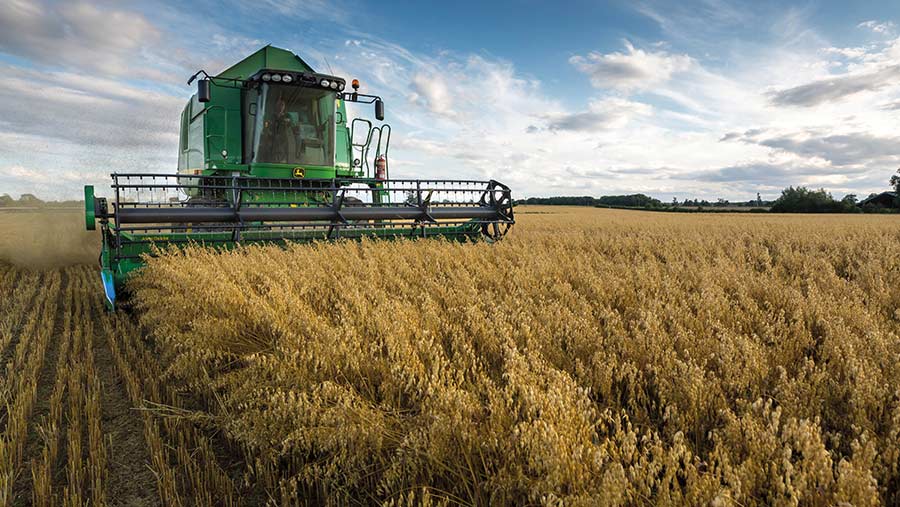Farmers advised to fit combine fire-suppression kit before harvest
 © Tim Scrivener
© Tim Scrivener Farmers are being encouraged to fit fire-suppression systems to their combines to reduce the risk of blazes at harvest time.
The system automatically triggers extinguishers if a fire is detected in the machine, and will improve harvest safety while reducing the risk of disruption at a crucial time of the year, NFU Mutual said.
The rural insurer dealt with claims from 124 combine fires in 2021 – up 35% from the previous year and including 10 costing more than £100,000 each.
See also: Combine fire suppression kit could offer insurance discount
Bob Henderson, from the Agricultural Engineering Team at NFU Mutual, said: “Modern combines are large and complex, so an unchecked fire can easily lead to a huge blaze that puts lives at risk, and can easily spread through dry crops and even engulf property and neighbouring fields.
“Suppression systems significantly reduce the risk of serious combine fires, and we urge farmers to fit them.”
Mr Henderson warned of delays to replacement combine parts due to supply chain disruption, and said fitting a fire-suppression system could help avoid costly disruption during harvest time.
P-Mark accredited
NFU Mutual recommended the P-Mark-accredited system. The kits include two cylinders, one with powder and the other with foam.
The powder interrupts the chemical reaction taking place and cuts off the oxygen supply.
The foam-suppressing agent in the second cylinder rapidly cools surfaces of more than 200C in larger engine bays, which also hold turbo chargers and filters.
NFU Mutual tips to prevent fire this harvest
- On newer machines fitted with information screens, ensure you follow all the guidance displayed during the start-up process. On older machines, ensure all recommended daily checks are carried out
- Regularly clean out dust and chaff from hotspots in combines and balers and check the machine over when you finish use
- Fit a suppression system that meets P-Mark status to contain, extinguish and prevent fires
- Switch off engines and ensure moving parts have stopped before clearing blockages or carrying out maintenance
- Always stop to investigate hot-running engines or bearings
- Have a plan in place in the event of a fire, including a system for keeping in contact with lone workers
- Keep mobile phones on you at all times – not left in a tractor or pickup cab
- Make sure drivers are aware of the locations and heights of power lines and check that machinery will safely pass under wires
- Ensure there is a fire extinguisher on the combine, that it is regularly maintained, and that you know where the nearest water source is

